Few times in my life can I recall having been moved by something so strongly that I was immediately forced to take action. To watch or read something and then immediately have the need to know more about it or the need to call a friend just to share must mean that it had profound impact on your life. This was the feeling I had after finishing the documentary Forks Over Spoons.
Before the credits were even rolling on the screen I had grabbed my phone and was dialing my dad to try to tell him about the enlightening and integral new info I had gleaned from this surprisingly clever documentary. My father was of course my first call as I felt he more than anyone else, needed to hear this info. It was only two months ago that I had received a phone call that had thrown my life drastically off balance. On a Friday morning mid way through my budget challenge month I had gotten an alarming call from my brother telling me our father had just had a heart spasm and that he was on his way to the hospital in New Westminster. I would only find out later that this heart attack was brought on from a combination of stress, smoking and his social lifestyle choices that often included eating out and drinking (occasionally in excess). Although my dad pulled through this terrifying brush with his own mortality and had committed to reducing his smoking habits, I wasn’t convinced his lifestyle choices had changed enough to save him from another dire incident. This thought weighed heavily on me on a daily bases and being that I lived four hours away from him didn’t make things any easier as it made me even more detached from his lifestyle.
After watching this documentary though I knew, without a doubt in my mind what I needed to do if I wanted to see him make it through another 20 years.
So, what about this documentary had made me so motivated to try and persuade my stubborn father to not only watch but implement it’s lessons? Simple, after everything I’ve researched so far this month, this documentary concisely and accurately proved that my dad’s diet more than anything else was what was going to put him in an early grave, and that scared the shit out of me…
Insight from Forks Over Knifes
Today in North America “two out of every three of us are overweight. Cases of diabetes are exploding, especially amongst our younger population. About half of us are taking at least one prescription drug. Major medical operations have become routine, helping to drive health care costs to astronomical levels. Heart disease, cancer and stroke are the country’s three leading causes of death, even though billions are spent each year to “battle” these very conditions. Millions suffer from a host of other degenerative diseases.
Forks Over Knives examines the profound claim that most, if not all, of the degenerative diseases that afflict us can be controlled, or even reversed, by rejecting our present menu of animal-based and processed foods. The major storyline in the film traces the personal journeys of a pair of pioneering yet under-appreciated researchers, Dr. T. Colin Campbell and Dr. Caldwell Esselstyn” (forksoverknives.com).
The studies and clinical trials of these two doctors demonstrate the direct correlation between a meat and dairy based, high saturated and trans-fat as well as processed food enriched diet and the resulting heart disease, liver disease and almost all of the most common types of cancer. The Doctors offer that only 1-2% of people get cancer solely from a gene related defect and that the other 98% of cases are caused as a result of the individuals outside environment, diet and behavior.
“Dr. Campbell, a nutritional scientist at Cornell University, was concerned in the late 1960’s with producing “high quality” animal protein to bring to the poor and malnourished areas of the third world. While in the Philippines, he made a life-changing discovery: the country’s wealthier children, who were consuming relatively high amounts of animal-based foods, were much more likely to get liver cancer.
Dr. Esselstyn, a top surgeon and head of the Breast Cancer Task Force at the world-renowned Cleveland Clinic, found that many of the diseases he routinely treated were virtually unknown in parts of the world where animal-based foods were rarely consumed.
These discoveries inspired Campbell and Esselstyn, who didn’t know each other yet, to conduct several groundbreaking studies. One of them took place in China (The study examined the diets, lifestyle, and disease characteristics of 6,500 people in 65 rural Chinese counties, comparing the prevalence of disease characteristics, excluding causes of death such as accidents) and is still among the most comprehensive health-related investigations ever undertaken. Their research led them to a startling conclusion: degenerative diseases like heart disease, type 2 diabetes, and even several forms of cancer, could almost always be prevented—and in many cases reversed—by adopting a whole-foods, plant-based diet” (forksoverknives.com).
These conclusions both confounded and troubled me. I thought about my dad and his recent heart troubles but now I also thought about my mom and her past medical issue. She had contracted Breast Cancer back in 2010 completely out of the blue and we never really understood why. She was forced to undergo radiation treatment, chemotherapy and eventually a double mastectomy to eventually beat back and overcome the disease. She had no history of cancer on her side of the family and she lived by all accounts a healthy, active, non smoking lifestyle. It just didn’t make any sense…perhaps until now.
How could the seemingly healthy, primarily meat based diet that I had grown up with be this harmful to my body? And if it was really so bad for us then why wasn’t this more common knowledge? I didn’t know the answers to these questions but I knew I needed to find out.
Searching For The Truth
As per usual my dad didn’t answer his phone when I called (he’s one of those guys that has a cell phone but rarely is around to answer it) so I decided to take this time to further investigate my new found perspective on the dangers of my mainstream diet. I rummaged around the internet for a while checking blogs, health sites and nutritional websites to see what evidence I could find. As I searched I found a repeated recommendation for a book called The Food Revolution by John Robbins. I figured if I was really going to get to the bottom of this myself I needed to invest so I hunted the book down on Audible and started the six and half hour journey to what I hoped to be some answers. What I found was far more than I bargained for…
The Food Revolution
The Food Revolution documents John Robbins, son of Irv Robbins co-founder of the famed Baskin Robins Ice-Creme, and his journey to create a positive and healthier diet for America by investigating, educating and exposing the impacts of our modern diet. John’s book was as equally eye opening as Forks Over Spoons and was full of facts and insight from medical professionals, research studies and journalist exposes. Below are just some of the quotes and facts I was able to pull from his book on the overwhelming evidence backing up the same claim as Forks Over Spoons, that a meat and dairy rich diet was the primary cause of an abundance of medical issues across the globe and that things were only getting worse.
Cardiovascular Disease
“Most of us grew up believing that animal protein is superior to plant protein, and that if we don’t eat animal protein we are risking our health. This is ironic given that animal proteins, in particular, have been found to raise cholesterol levels. Soy proteins, on the other hand, have consistently been found to lower cholesterol levels.”
“Vegetarians have the best diet; they have the lowest rates of coronary heart disease of any group in the country.” -William Castelli, M.D., Director, Framingham Health Study, the longest-running study of diet and heart disease in world medical history
“In regions where … meat is scarce, cardiovascular disease is unknown.” -Time magazine
“A large and convincing body of evidence from studies in humans … shows that diets low in saturated fatty acids and cholesterol are associated with low risks and rates of atherosclerotic cardiovascular disease.” -U.S. National Research Council, in “Diet and Health, Implications for Reducing Chronic Disease Risk”
“Blood cholesterol levels are of course not the only dietary factor affecting the risk of heart disease, but the advantages of having a lower level are enormous. William Castelli, M.D., Director of the Framingham Health Study, says that when people keep their cholesterol levels below 150, they are virtually assured of never suffering a heart attack. “We’ve never had a heart attack in Framingham in 35 years in anyone who had a cholesterol under 150.” It can be stunning how quickly people with heart disease improve when they adopt a low-fat vegan diet. Patients enrolled in the McDougall Program at St. Helena Hospital in Santa Rosa, California, consistently show dramatic improvement after only two weeks on a very low-fat vegan diet. Faced with evidence like this, the meat, dairy, and egg industries persist nonetheless in trying to defend their products. Sometimes they attempt to shift responsibility onto your genes. It’s not what you eat that matters most, they say, it’s your DNA, so you may as well go ahead and have a steak…
Many of us feel confused. There is so much information about diet and health all around us. How do we sort it out? Our task is not made easier when those who sell the foods that contribute to heart disease, high blood pressure, and many other diseases are doing everything they can, and spending billions of dollars in the effort, to influence how we think and what we eat. Confused and disempowered, we too often end up not making the food choices that could dramatically improve the health of our cardiovascular systems, greatly reduce our risk of heart disease and high blood pressure, and vastly improve the quality of our lives. We complain, we feel bad, we get sick, but we don’t do the one thing that could in fact go far to restore our inner vitality and the unimpeded circulation of our bloodstreams.
A low-fat plant-based diet would not only lower the heart attack rate about 85 percent, but would lower the cancer rate 60 percent.” -William Castelli, M.D., Director, Framingham Health Study; National Heart, Lung, and Blood Institute
Cancer
“In 1997, the American Institute for Cancer Research, in collaboration with its international affiliate, the World Cancer Research Fund, issued a major international report, Food, Nutrition and the Prevention of Cancer: A Global Perspective.’ This report analyzed more than 4,500 research studies, and its production involved the participation of more than 120 contributors and peer reviewers, including participants from the World Health Organization, the Food and Agriculture Organization of the United Nations, the International Agency on Research in Cancer, and the U.S. National Cancer Institute. Since its publication, the report has been hailed by scientists around the world and has helped establish a new foundation for research and education efforts related to cancer prevention. The report finds that 60 to 70 percent of all cancers can be prevented by staying physically active, not smoking, and most important, by following the report’s number one dietary recommendation: “Choose predominantly plant-based diets rich in a variety of vegetables and fruits, legumes, and minimally processed starchy staple food” (The Food Revolution, pg. 50)
“Now some people scoff at vegetarians, but they have only 40 percent of our cancer rate. They outlive us. On average they outlive other men by about six years now. Researchers have found that the likelihood of a vegetarian reaching the age of 80 is 1.8 times greater than that of the general population even after adjusting for smoking. And cancer rates for vegetarians are 25 to 50 percent less than those of the general population-even after controlling for smoking, body mass index, and socioeconomic status” -William Castelli, M.D., Director, Framingham Heart Study; National Heart, Lung, and Blood Institute.
Milk/Dairy
“The president of the Physicians Committee for Responsible Medicine, Neal Barnard, M.D., spoke strongly about the dairy ads. “The dairy industry continues to whitewash the dangers of cow’s milk,” he said. “The ubiquitous `milk mustache’ campaign snakes misleading claims about milk preventing osteoporosis, lowering blood pressure, and enhancing sports performance. Recent studies, including the Harvard Nurses’ Health Study, have shown that milk offers no protection against broken bones. And, unlike prescription drug ads, the mustache ads don’t reveal the many unwanted `side-effects’ of milk, among them increased risk of prostate and ovarian cancer, diabetes, obesity, and heart disease.” (The Food Revolution, pg. 92)
“One cup of milk contains 300 mg of calcium, but only 32 percent (96 mg) of it is bio-available. Contrary to the dairy industry’s assertions, you can derive this amount of bioavailable calcium from just over 1 cup of firm tofu made with calcium, from 1.5 cups of cooked broccoli, or from 1 cup of sesame seeds” (American Journal of Clinical Nutrition).
Countries with the highest consumption of dairy products: Finland, Sweden, United States, England
Countries with the highest rates of osteoporosis: Finland, Sweden, United States, England
(The Food Revolution, pg. 92)
Meanwhile, there are a few more things the dairy industry isn’t telling you about the nutritional comparison between cow’s milk and soy milk. For example:
- Cow’s milk provides more than nine times as much saturated fat as soy beverages, so is far more likely to contribute to heart disease.
- Soy beverages provide more than 10 times as much essential fatty acids as cow’s milk, so provide a far healthier quality of fat.
- Soy beverages are cholesterol-free, while cow’s milk contains 34 mg of cholesterol per cup, which again means that cow’s milk is far worse for your heart and cardiovascular system.
- Soy beverages lower both total and LDL (“bad”) cholesterol levels, while cow’s milk raises both total and LDL cholesterol levels, providing yet more reasons soy milk is better for your health.
- Soy beverages, unlike cow’s milk, provide substantial amounts of substances known as “phytoestrogens” (genestein, daidzen, and so on), which lower both heart disease and cancer risk.
- Men who consume one to two servings of soy milk per day are 70 percent less likely to develop prostate cancer than men who don’t.
- Antibiotics allowed in U.S. cow’s milk: 8042 Antibiotics found in soy milk: None
(The Food Revolution, pg. 98)
Disease
“A report by the United States Department of Agriculture estimates that 89 percent of U.S. beef ground into patties contains traces of the deadly E. coli strain.” – Reuters News Service
- Primary source of E. coli 0157:H7 infections: Hamburgers and other forms of ground beef
- Potential consequence of ingestion of deadly E. coli 0157:H7 bacteria in humans: Devastating illness with multiple organ failure and high death rate”
- Long-term afflictions suffered by many survivors of E. coli 0157:H7 poisoning: Epilepsy, blindness, lung damage, kidney failure”
(The Food Revolution, pg. 111)
“Nearly every food consumers buy in supermarkets and order in restaurants can be eaten with certainty for its safety-except for meat and poultry products.” – Steve Bjerktie, Executive Editor, Meat Processing magazine’
- Leading cause of food-borne illness in the United States: Campylobacter
- People in the United States who become ill with Campylobacter poisoning every day: More than 5,000
- Annual Campylobacter-related fatalities in the United States: More than 750
- Primary source of Campylobacter bacteria: Contaminated chicken flesh
- American chickens sufficiently contaminated with Campylobacter to cause illness: 70 percent
- American turkeys sufficiently contaminated with Campylobacter to cause illness: 90 percent
- Number of hens in three commercial flocks screened for Campylobacter by University of Wisconsin researchers: 2,300
- Number of hens that were not infected with Campylobacter: 831
(The Food Revolution, pg. 111)
“Year after year the egg industry goes to [Congress] to try to turn back public health improvements. Eggs remain at the top of the list of foods that are causing food-borne outbreaks.” – Center for Science in the Public Interest
- Americans sickened from eating Salmonella-tainted eggs every year: More than 650,000
- Americans killed from eating Salmonella-tainted eggs every year: 600
(The Food Revolution, pg. 111)
A Healthy Plant-Based Diet
“Nothing will benefit human health and increase the chances for survival of life on earth as much as the evolution to a vegetarian diet.” -Albert Einstein
What would a healthy plant-based diet look like?
- It would include lots of fresh vegetables and fruits.
- It would be low in refined and processed foods and sugar.
- It would not include hydrogenated fats and trans-fats (found in many margarines and white flour pastries).
- It would be low in both saturated animal fats and vegetable oils such as safflower, corn, sunflower, and cottonseed oils.
- It would include more water and less soda pop, more baked potatoes and less French fries, and more whole grains and fewer products made from refined flour. (The American Institute for Cancer Research says 40 studies have linked regular consumption of whole grains with a 10 to 60 percent lower risk of certain cancers.)”
- When possible, it would feature locally and organically grown foods.
- It would not include MSG, artificial preservatives, colors, or other chemical additives.
- For infants, it cannot be said too often, there is no product that can even begin to match the advantages of breast milk.
- For vegans, it’s important to include foods that are fortified with vitamin B-12, or supplementary sources of the vitamin.
- For vegan women who are pregnant or nursing, B-12 supplements are indispensable.
(The Food Revolution, pg. 86)
The Misleading Numbers
Where most Americans get their information about foods:
- Advertising Amount spent annually by Kellogg’s to promote Frosted Flakes: $40 million
- Amount spent annually by the dairy industry on the “milk mustache” ads: $190 million
- Amount spent annually by McDonald’s advertising its products: $800 million
- Amount spent annually by the National Cancer Institute promoting fruits and vegetables: $1 million
(The Food Revolution, pg. 89)
A Dietary Debate of Conscience
I was left with feeling of dissolution. My diet, my lifestyle and my perception of health were being turned upside down. I had never heard any of these stats before and shamefully I had to admit that I too had only gotten my nutritional information from TV advertising and other sources of media that would have been directly influenced in the best interest of the industry’s that were promoting them.
“Part of a balance breakfast.” “They’re GRRREAT!” “Milk, it does a body good.” “Beef, it’s what’s for dinner”
These were my guiding nutritional tag lines. But knowing what I know now they all seem so self serving and misleading. It was obvious that there were some major issues with our current diets and something needed to change, but the question was how drastic of a change was I willing to make? I considered whether I could change my habits after so many years and I wondered if I didn’t, could I really expect my parents to make changes in there lives? Knowing that they were both in a much higher risk of sickness than myself I knew if something didn’t change they would almost certainly become another one of the stats listed above. With this in mind I knew that I had to at least try to do something to change my life and there’s.
I’m not sure exactly what that change will look like yet as I still have more investigating to do but I do know one thing, my view on my health and the spoon fed version of health that I’ve grown up with has forever been changed. I will never look at meat, dairy, and my diet the same way again and however I decide to eat in the future I will make sure it is, if nothing else, a diet of conscience and purpose.
Has this information affected you? Do you have parents in a similar position with their health? How would you try to help them? Reach out and share, I would love to hear your insight.
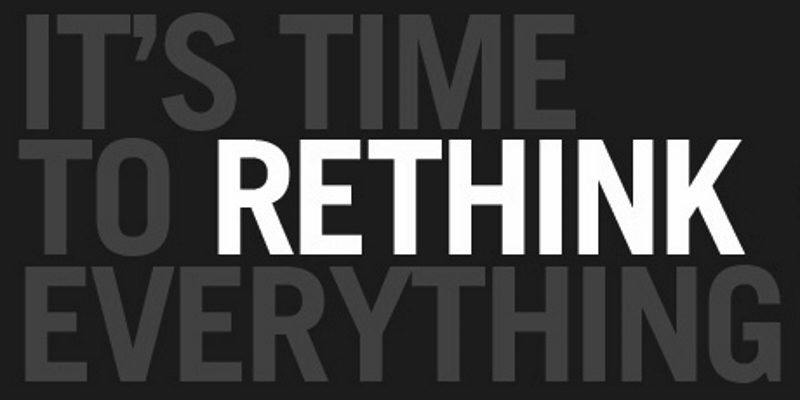
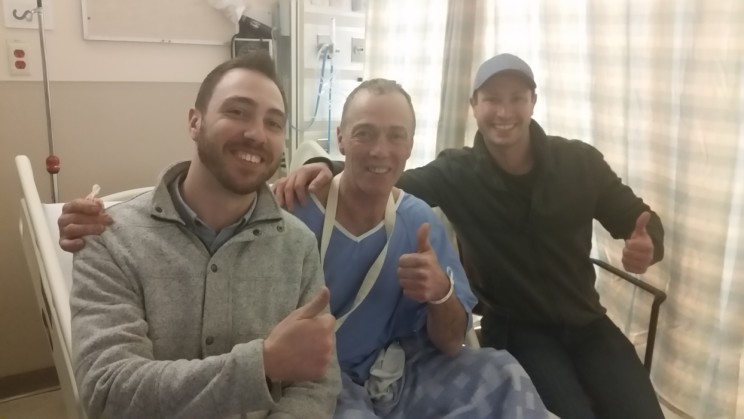
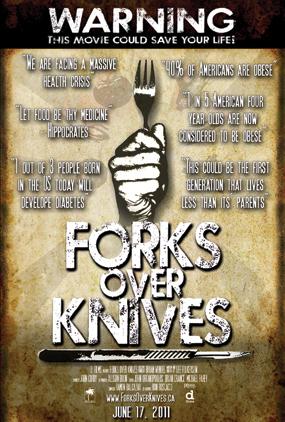
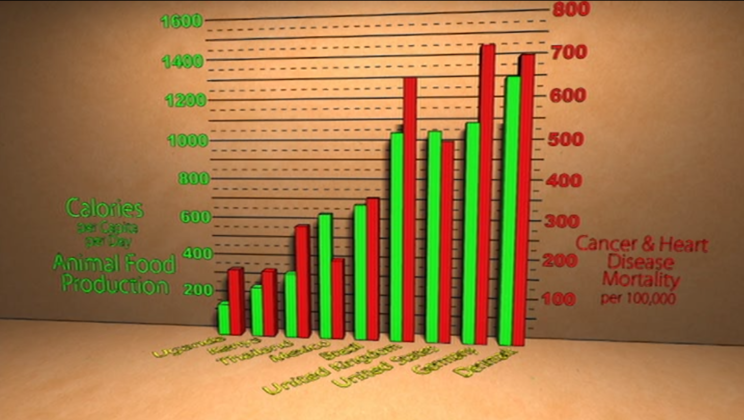


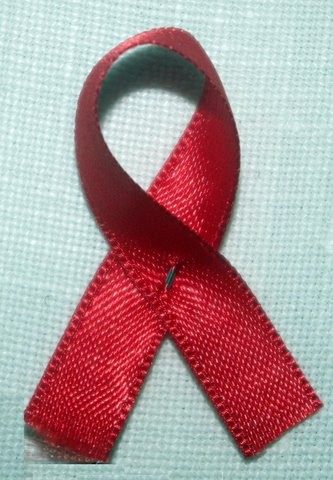
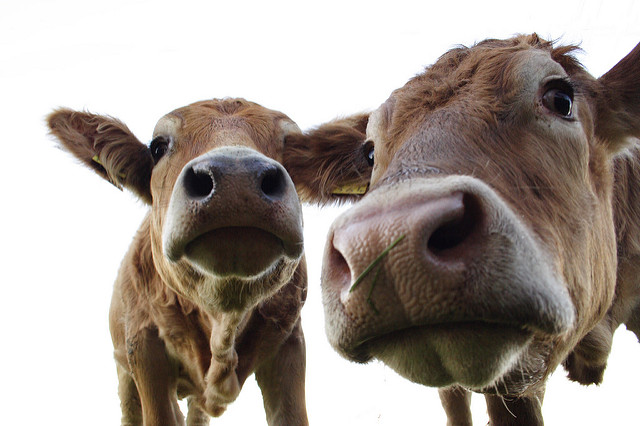
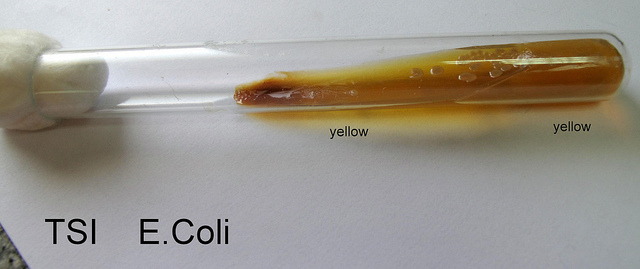
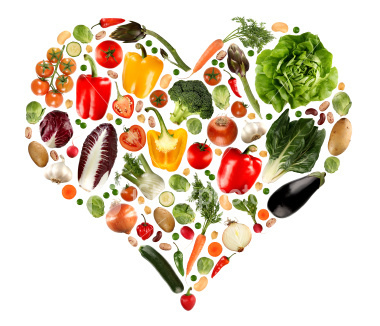
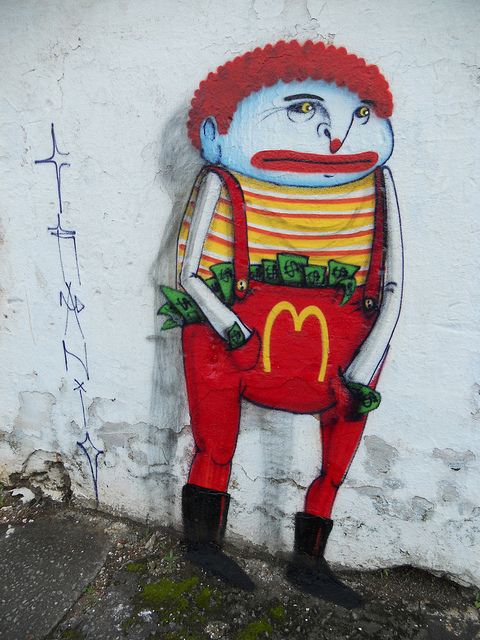
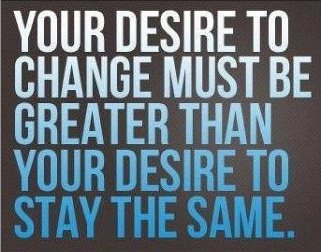




You've done a great job of compiling all this valuable information! Also loved The Naked Truth About Vegans!
Great blog! I read "Diet for a New America" by John Robbins 10 years ago and stopped eating animal products immediately as I was that impacted by what I had learned. Within months I lost approx. 35lbs, my skin cleared, no more phlegm in my throat, my energy increased & finally felt as tho I had mental clarity! Most importantly my actions were finally in alignment with my personal philosophy that animals should not be harmed for my trivial palate. Becoming vegan is the best thing I ever did!